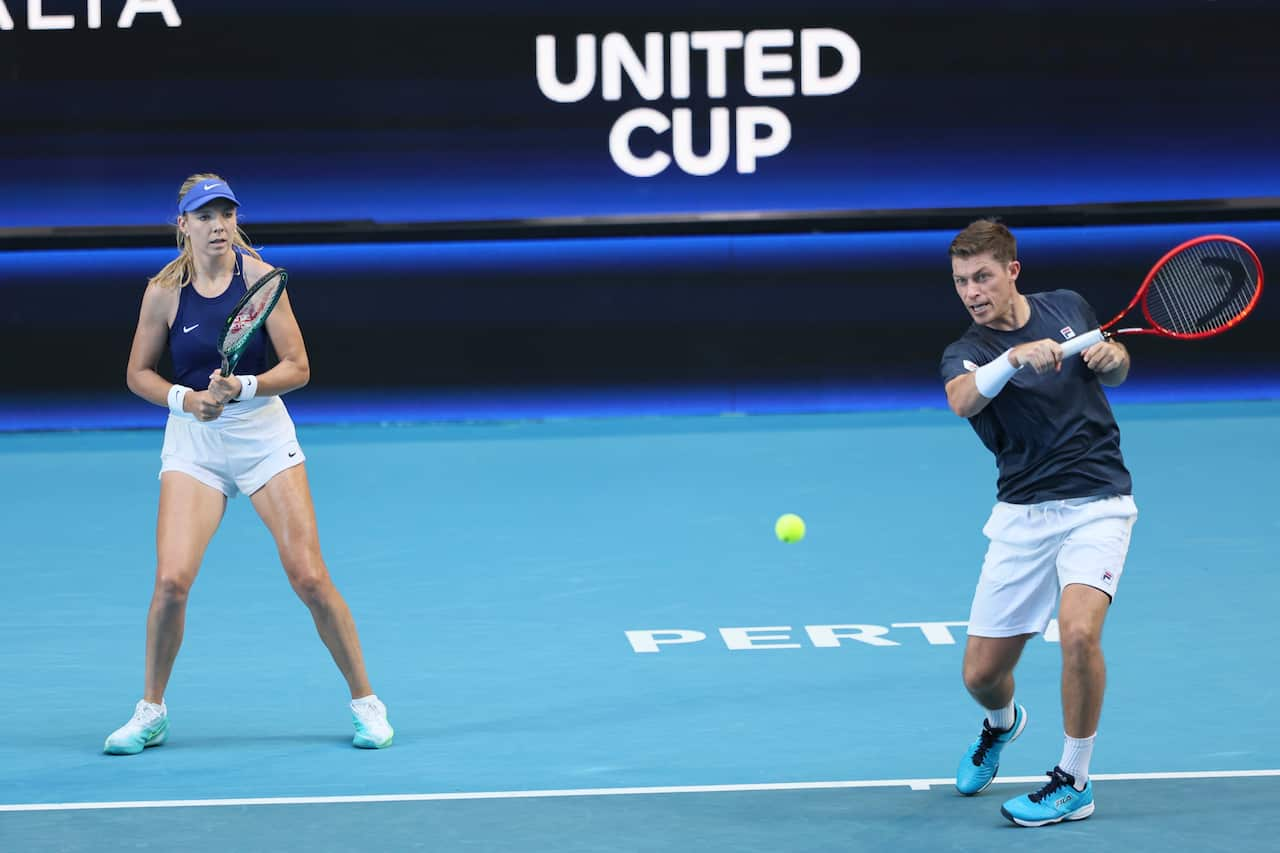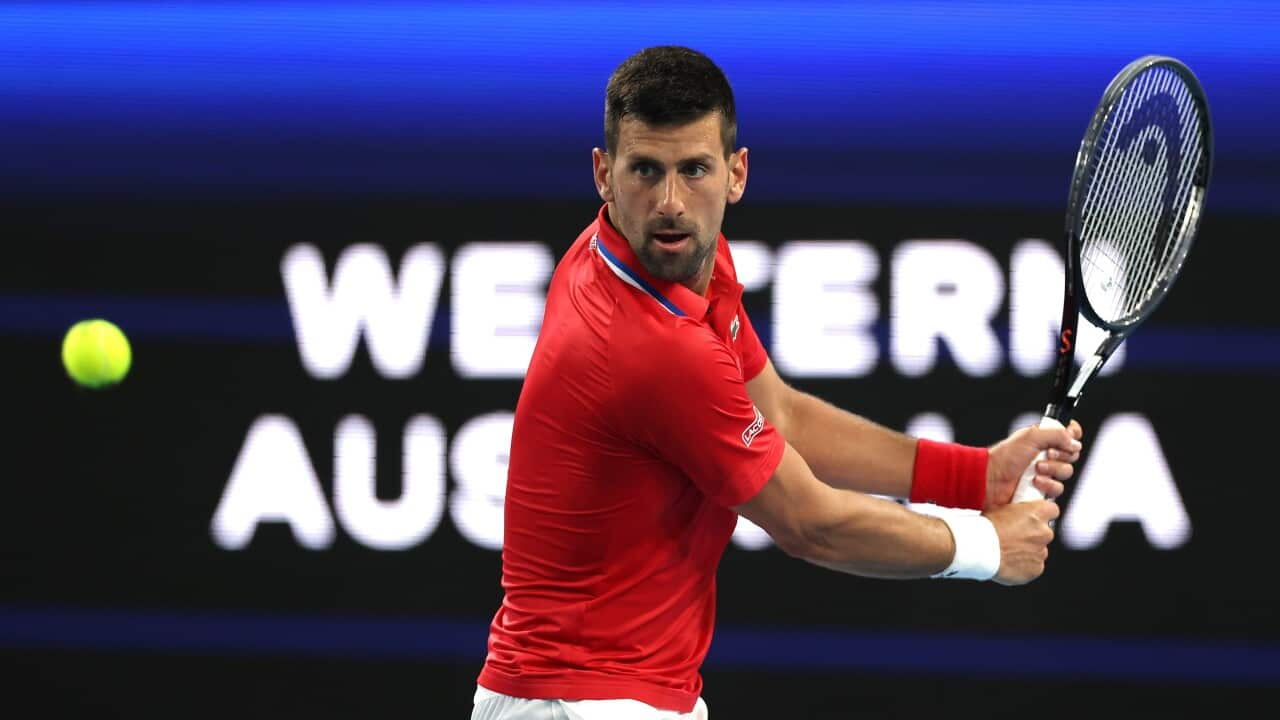Key Points
- Rumours have grown about a tennis version of the LIV Golf tour after its success in disrupting the PGA.
- World no. 1 Novak Djokovic said he was in the dark about a rebel tour but agreed innovation in the sport was needed.
- Organisers of the major four grand slams are rumoured to be collaborating on a new elite tennis tour.
The year in tennis started before fireworks lit up skylines at midnight on December 31 — but thoughts are already turning to 2025 and the potential emergence of a rebel tour.
Rumours continue to grow about a shake-up to tennis, similar to the way the Saudi Arabia-backed LIV Golf tour has changed the professional leagues of that sport with the offer of big-money contracts and a new series of tournaments.
Novak Djokovic, speaking ahead of the calendar opener United Cup in Australia, said he had heard whispers about the plan but was in the dark about any changes to the ATP and WTA tours.
"I think we need to try to adjust to the modern times and try to understand what the younger audience wants and really make the tennis more appealing to that group," he said.
A report in the New York Times' sports website The Athletic suggested the four grand slams, including the Australian Open, could also create a new 'elite' tour following the rumours of a new Saudi-backed rebel tour.
This would include a dozen other events, reducing the strain on top players who currently play in a 48-week circuit, which started in Australia on 29 December with the United Cup.
It quoted an anonymous industry executive saying that "Saudi Arabia and the PTPA (Professional Tennis Players Association)" have meant change is more likely, a reference to how the Gulf state changed golf.
Why are there rumours of a LIV Golf-style tennis tour?
In 2021, a Saudi Arabia-backed LIV Golf Series was created as an alternative to the PGA tour.
Aussie golf icon Greg Norman spearheaded the league and helped lure players away from the PGA, and former major champions Phil Mickelson and Dustin Johnson.
Due to its wealthy backers, LIV Golf had a lucrative $37 million (US$25m) in prize money, ensured all players were paid by abolishing mid-tournament cuts and added elements like a team component.
The rival tour has since merged with the PGA and European Tour, but that hasn't stopped reports that a Saudi-backed disruption could be headed for tennis.
In June, ATP Tour chair Andrea Gaudenzi confirmed "positive" talks had taken place with Saudi Arabia's Public Investment Fund regarding a new tournament — but not a tour — estimated to be worth almost half a billion dollars.
Saudi Arabia reportedly hopes to host a new Masters 1000 tournament as early as January 2025, which would conclude before the Australian Open but threaten lead-up events like the United Cup and ASB Classic in New Zealand.
Details have not been released about any changes but leading governing figures and bodies are reportedly considering an elite tour for top-level players.
They would play the 14 biggest tournaments including the Grand Slams, the 10-12 most successful tour events and the two tour finals, reducing their tour load by several tournaments.
The other events could become part of a developmental tour for those outside the 100 and potentially be organised into regional circuits, with players competing for a spot in the premier tour the following season.
How would an elite or rebel tour change the sport?
Tennis has long been criticised by commentators and players alike for the gruelling length of its season, as well as a pay disparity between those in the top 100 and top 2000.
Michael Jetter, research fellow at the University of Western Australia, said tennis was by far the most unequal sport in terms of pay.
"In tennis, if you're ranked 100 or 120 in the world, you may just be basically breaking even over the year or maybe able to just save … but not really nearly as much as in any other major sport in the world," he told SBS News.
"If you look at the top, the Djokovices, Federers, Nadals and such, they've all made hundreds of millions in prize money, plus endorsements. So it's a very unequal sport in terms of payment."
Jetter said it was a "high-cost sport" with professional players struggling to fund the "circus" of flights every week or two, as well as coaches, hotels and outfits.
He added that a lack of support from the tours meant highly promising players ran out of money mid-season and were unable to continue.
John Morris, the industry veteran at the helm of 72 Sports Group, told The Athletic that an elite tour would be simpler for fans to follow and help players outside the top 100 keep up with high costs.
Morris said such players could largely stick to playing in regional circuits to alleviate the high cost of touring. He also floated the idea of a minimum salary for players.
Meanwhile, a LIV-style alternative could create competition and offer lower-ranked players more chances to play and earn money outside the current monopoly.

Taylor Fritz and Jessica Pegula of the United States both commented on rumours of a rebel tour while playing in Perth after Christmas. Source: AAP / Trevor Collens
Her teammate Taylor Fritz questioned whether players would be eligible to play in both tournaments, referring to the suspension of PGA members when they first took part in LIV Golf.
"I do think the way the tour is now, there's lots of things that could be improved," he said in Perth.
"I guess you'd have to wait and see if a different tour came along, if they made it better for players."



